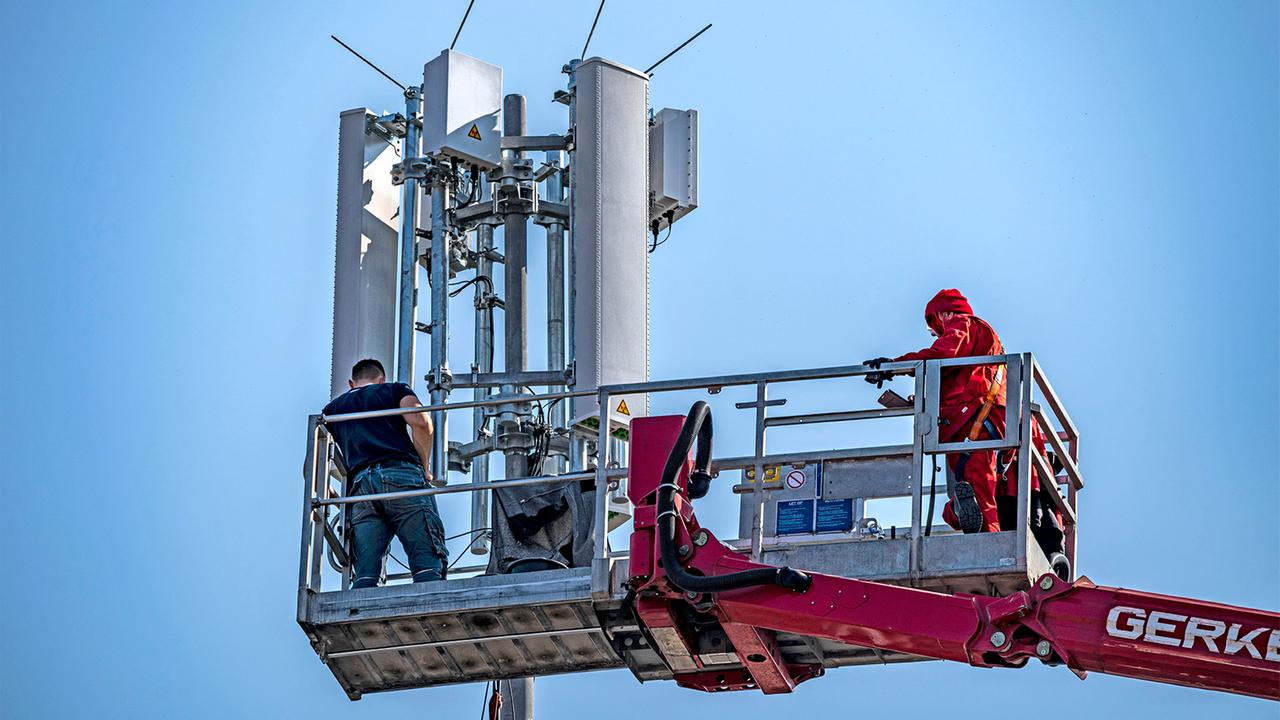The German 5G network will now definitely be expanded without components from the Chinese companies Huawei and ZTE – this was decided by the federal government. Interior Minister Faeser emphasized that this would protect citizens' communications.
The German government has announced a ban on components from Chinese manufacturers Huawei and ZTE in 5G mobile networks. “The critical components may no longer be used in the core network by the end of 2026 at the latest,” explained Federal Minister of the Interior Nancy Faeser.
The critical management systems in the access and transport networks must therefore be replaced by the end of 2029 at the latest.
“More security for citizens”
Faeser said that the risks posed by critical components from Chinese manufacturers in German 5G mobile networks had been examined very carefully. “We have now made a clear and strict decision. This means more security for citizens,” she said.
This protects the central nervous systems of Germany as a business location. “We protect the communication of citizens, companies and the state. We must reduce security risks and, unlike in the past, avoid one-sided dependencies. We must become more independent and more crisis-proof.”
Federal Digital Minister Volker Wissing explained that it was important in the agreement that was reached “that there will be no loss of mobile phone coverage for the population.” SPD parliamentary group vice-chair Dirk Wiese also warned that the goal must continue to be “to achieve network expansion quickly and inexpensively, but above all to ensure it is safe from possible foreign espionage and influence.”
Vodafone: A Challenge, but doable
A Vodafone spokesman said that this agreement was technically challenging for the mobile operators: “But it is feasible and, in our view, the right way forward.” For infrastructure investors, the agreement finally provides the much-needed predictability.
A Telekom spokesman described the agreement as “a good balance between the security interests of our country and the necessary further expansion of digital infrastructure in Germany.” The compromise reached accommodates the company's own customers “with the best possible network coverage.”
Huawei rejects concerns
Huawei Germany rejected the German government's security concerns. In a statement, the company explained that the company had established itself as a reliable supplier of innovative and secure telecommunications technologies in Germany over the past 20 years. There is “no comprehensible evidence or plausible scenarios that Huawei's technology would pose a security risk in any way,” the company emphasized.
Huawei will “continue to work constructively and openly with our partners and customers to jointly achieve improvements and progress in the area of cybersecurity and to accelerate the construction of mobile networks and digitalization in Germany,” the statement continued.
China criticizes measure
China has already reacted critically to the reports. Politicizing economic, trade and technological issues only disrupts cooperation and is not in the interests of either side, said Foreign Ministry spokesman Lin Jian in Beijing.
China hopes that Germany will respect the facts, make sensible decisions and provide a transparent and non-discriminatory market environment for companies from all countries, including those from China.
Chinese technology in 5G network expansion has been the subject of debate for years. These are driven by concerns that China could gain access to German mobile phone networks via providers such as Huawei.
Federal Government originally wanted shorter deadlines
The dispute over Chinese providers and their participation in the German 5G mobile network has been going on for years. A meeting between government representatives and representatives of mobile phone companies this week finally brought about an agreement, according to research by WDR, ndr and Süddeutsche Zeitung, about the tagesschau.de reported on Wednesday.
The deadlines now agreed for the use and replacement of Chinese components in the network represent a compromise; the federal government originally wanted to set shorter periods for the transition. If the agreed deadlines are not met, the companies face contractual penalties.
Criticism from the Bundestag over long transition period
There is resistance in the Bundestag against the decision not to completely ban Huawei components until 2029. “The fact that companies have to remove the relevant components after a delay of years represents a veritable security risk,” said the deputy leader of the Green Party, Konstantin von Notz.
“It is a mystery to me why, following the new geopolitical situation since February 24, 2022, it took the traffic light coalition more than two years due to internal disputes to decide to exclude Chinese components from the German mobile network,” criticized CDU/CSU digital expert Reinhard Brandl.
Philipp Eckstein, ARD Berlin, tagesschau, 11.07.2024 14:44




